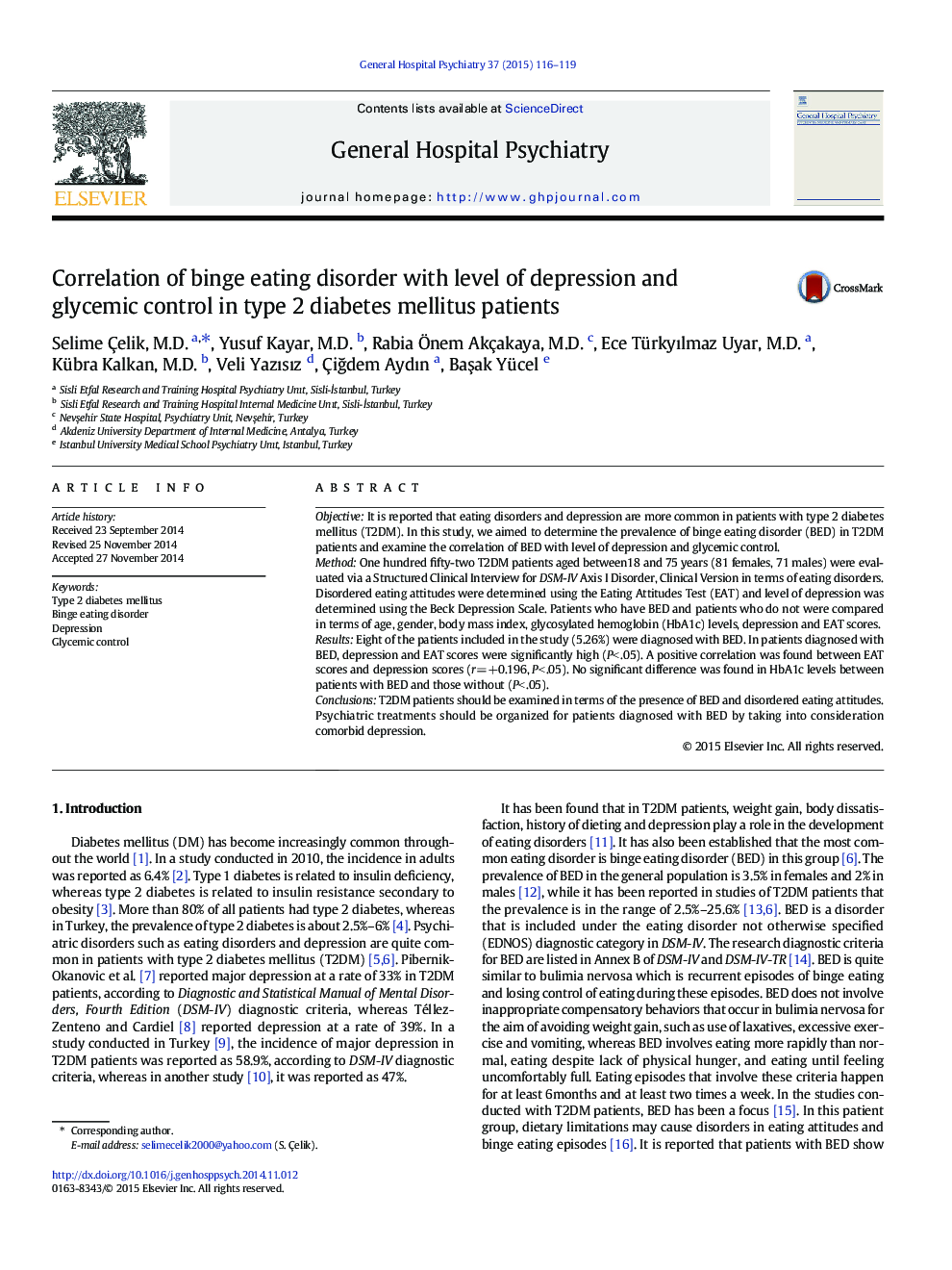| Article ID | Journal | Published Year | Pages | File Type |
|---|---|---|---|---|
| 3237576 | General Hospital Psychiatry | 2015 | 4 Pages |
ObjectiveIt is reported that eating disorders and depression are more common in patients with type 2 diabetes mellitus (T2DM). In this study, we aimed to determine the prevalence of binge eating disorder (BED) in T2DM patients and examine the correlation of BED with level of depression and glycemic control.MethodOne hundred fifty-two T2DM patients aged between18 and 75 years (81 females, 71 males) were evaluated via a Structured Clinical Interview for DSM-IV Axis I Disorder, Clinical Version in terms of eating disorders. Disordered eating attitudes were determined using the Eating Attitudes Test (EAT) and level of depression was determined using the Beck Depression Scale. Patients who have BED and patients who do not were compared in terms of age, gender, body mass index, glycosylated hemoglobin (HbA1c) levels, depression and EAT scores.ResultsEight of the patients included in the study (5.26%) were diagnosed with BED. In patients diagnosed with BED, depression and EAT scores were significantly high (P< .05). A positive correlation was found between EAT scores and depression scores (r=+0.196, P< .05). No significant difference was found in HbA1c levels between patients with BED and those without (P< .05).ConclusionsT2DM patients should be examined in terms of the presence of BED and disordered eating attitudes. Psychiatric treatments should be organized for patients diagnosed with BED by taking into consideration comorbid depression.
